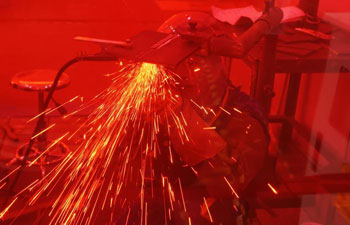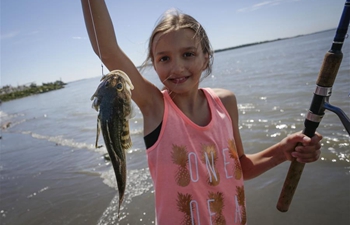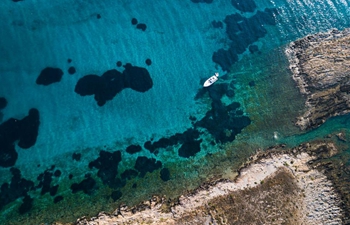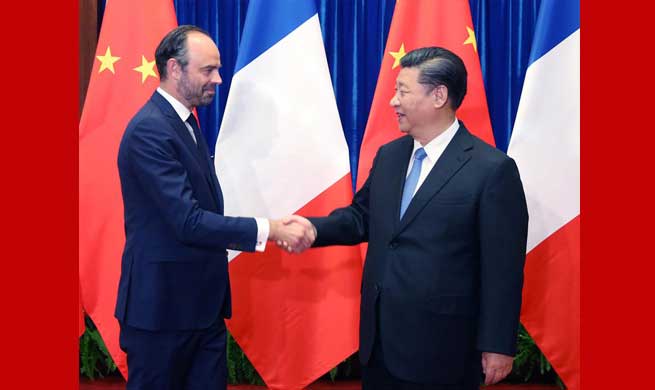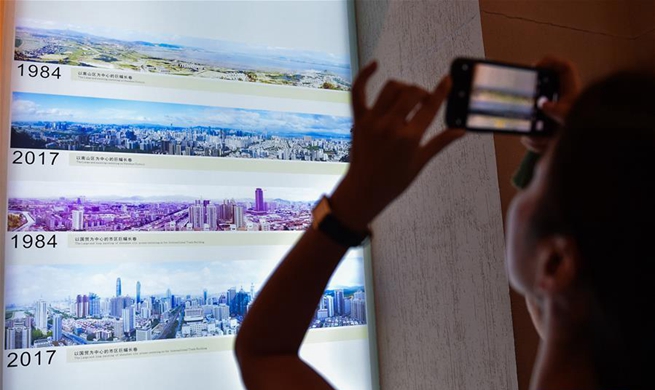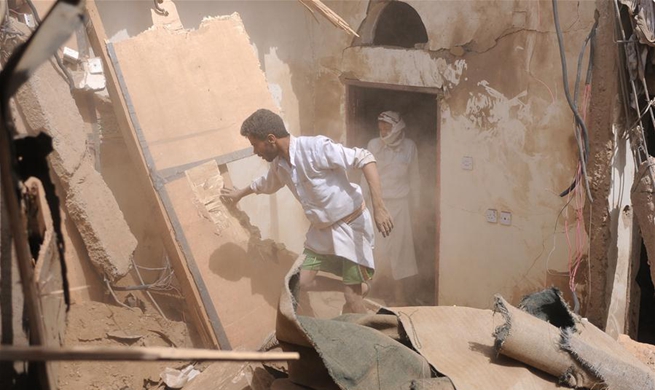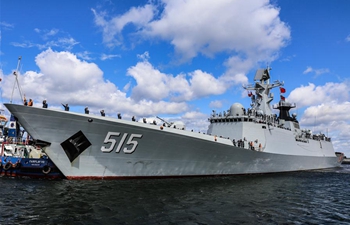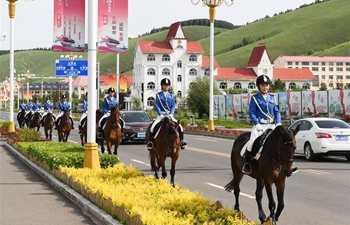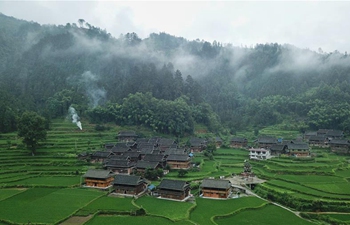MOSCOW, June 25 (Xinhua) -- There are not many small teams at the World Cup and the matches are becoming more difficult. That was the view of French coach Didier Deschamps here on Monday as he answered a question from Xinhua.
At the pre-match press conference in the Luzhniki Stadium, a Xinhua reporter asked him to comment on the challenge that so-called small teams can pose to the favourites. Deschamps remarked that this dynamic "is the reality of the World Cup."
"There are not many small teams, they are very well prepared physically speaking," he said. "What is easier is on the attack while it is more difficult for defense. But if you have a team that is physically prepared, defending is easier than attack. So we saw it yesterday, when you have a very strong defense, you have two or three opportunity, whether it is a set-piece or counterattack."
The 49-year-old former coach of Juventus and Marseilles admitted that it is unusual to encounter difficulties in the group stage. "Apart from two or three teams which I am not going to quote who are maybe below par, the overall level of teams that are called 'weak' is disappearing. They are ready from the first match," he said.
"Today it is very difficult in the World Cup," Deschamps added. "So you need to be prepared and ready from the first game."
The "Les Bleus" beat Australia 2-1 with the help of the first use of Video Assistant Referee in the World Cup Group C opener. Then a victory against Peru in Yekaterinburg sent France atop Group C with six points and ensured them a position in the last 16.
Talking about the match against Denmark on Tuesday afternoon, Deschamps said they are not going to give other teams a helping hand. "Our aim is to be the first in the group," he said. "I have never envisaged our team playing for a draw. No, we are going to play to win."
He adds that there might be changes to come in the starting lineup. "Of course it's different when you arrive with six points. I have options, so I will look at the individual situation of each player, the yellow cards and how I can manage their play time," he said.
"I will talk to my players," he said. "I want to communicate. I don't want to lose anybody. Before making decision, it is common for me to have exchanges with each one of them to get their feelings. That may not necessarily affect me this way or the other because I have already had an idea in my head, but I want to have their feelings so that I can decide to follow them or (go in) the opposite direction if it is good for the team."
Deschamps also talked about midfielder Paul Pogba, who said earlier that the current World Cup in Russia could be his last.
"He is 25 and it is highly possible that he goes to the next World Cup. He went through difficulties, but he has gained experience. He is good, happy and motivated."
Also attending the press conference was defender Raphael Varane, who was asked if he will be captain of the team in the next match.
"The coach is the one who is going to decide," he said. "If I could be the captain, it will be a (point of)pride for me. But no matter what, I will have the same responsibility."
The French team is always being compared with the one twenty years ago, which won the World Cup and the European Championships with Deschamps as the skipper.
"It is difficult to compare generations," said Varane. "If we get fed up (with the question), we will win and then nobody will bother us again."




